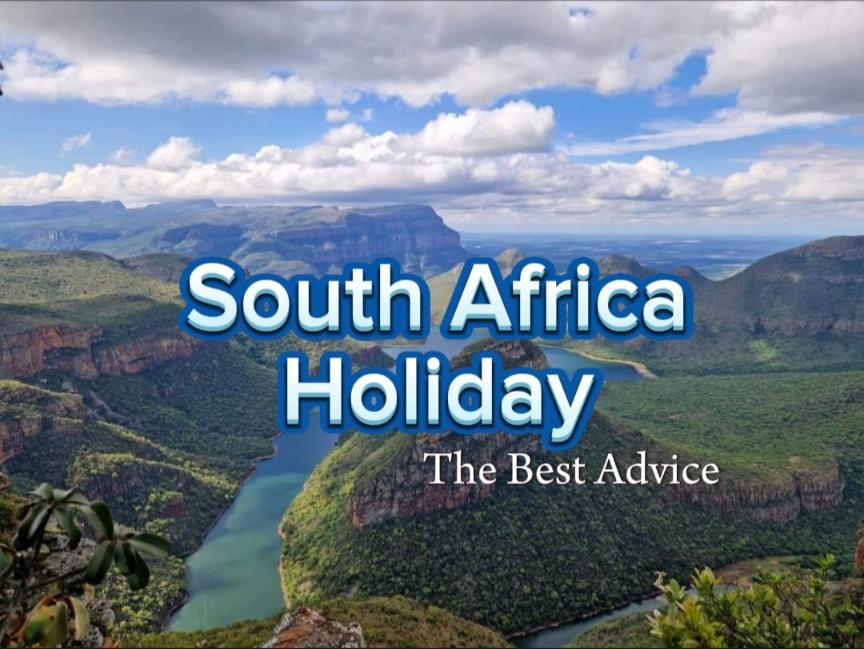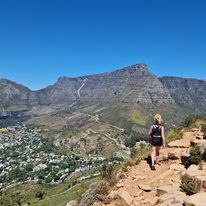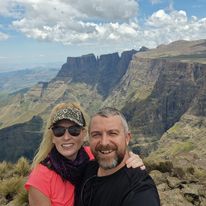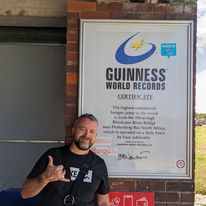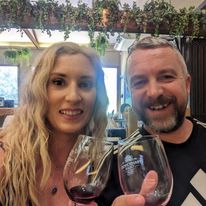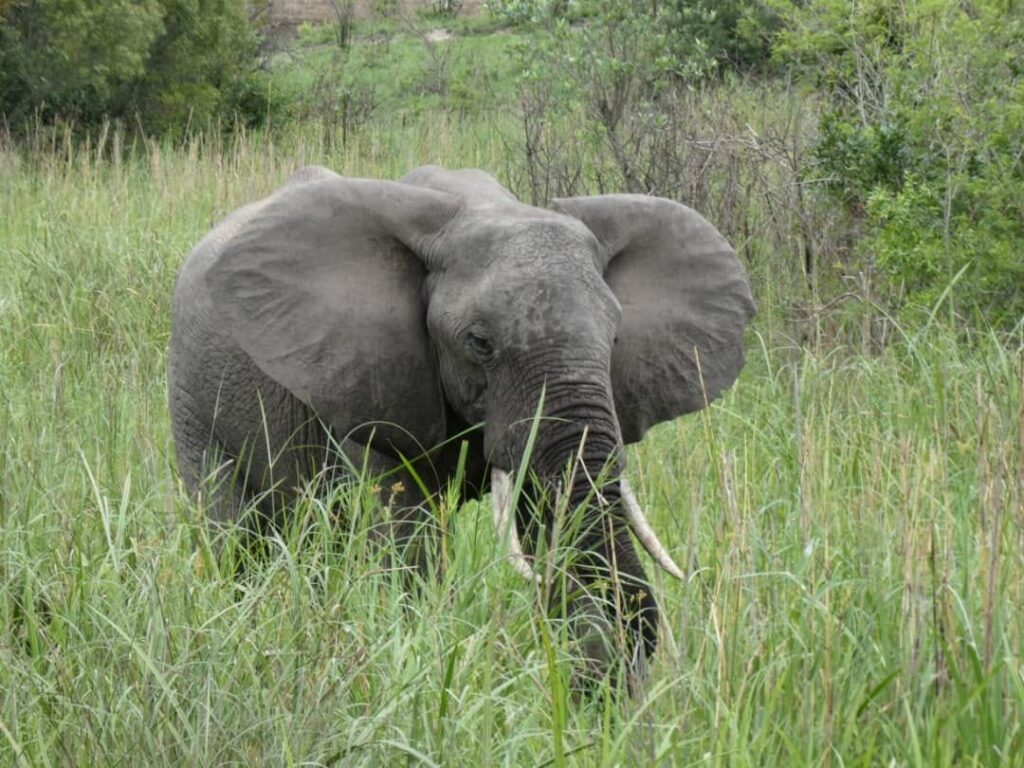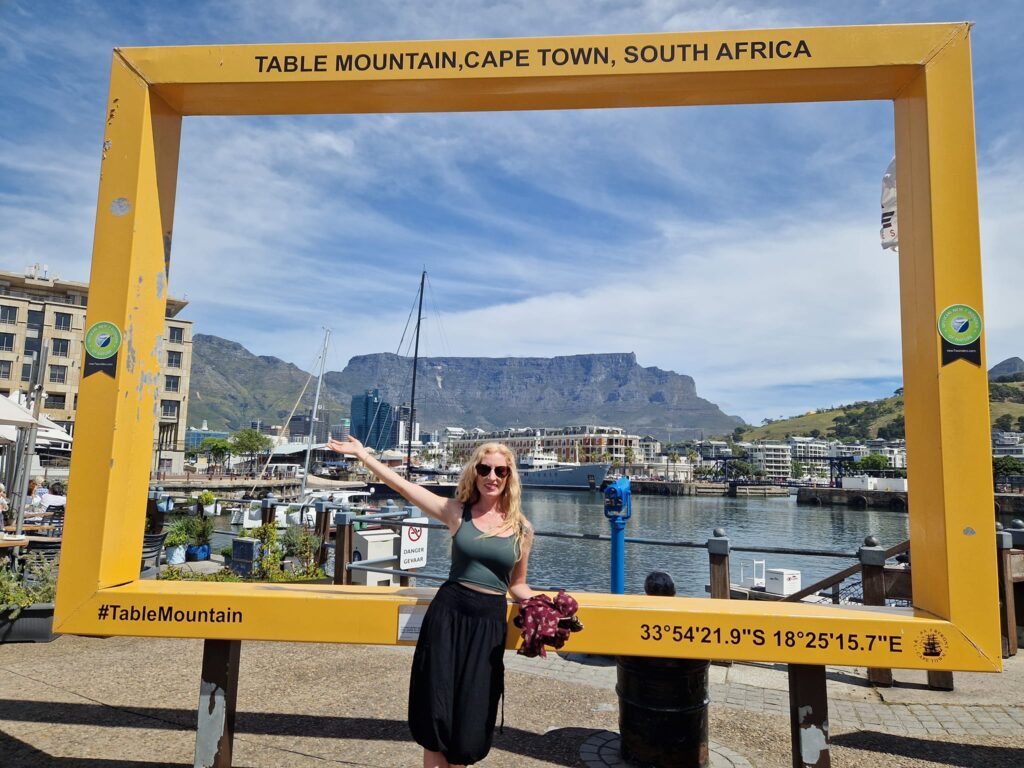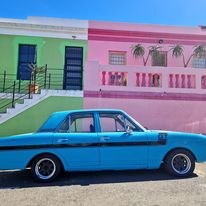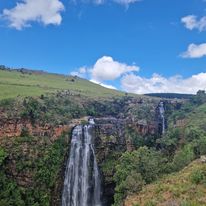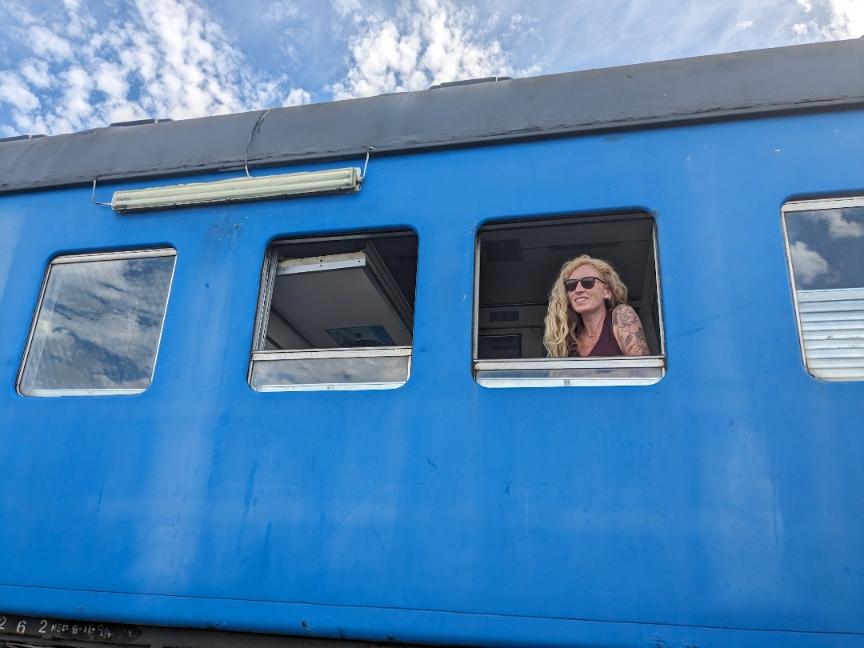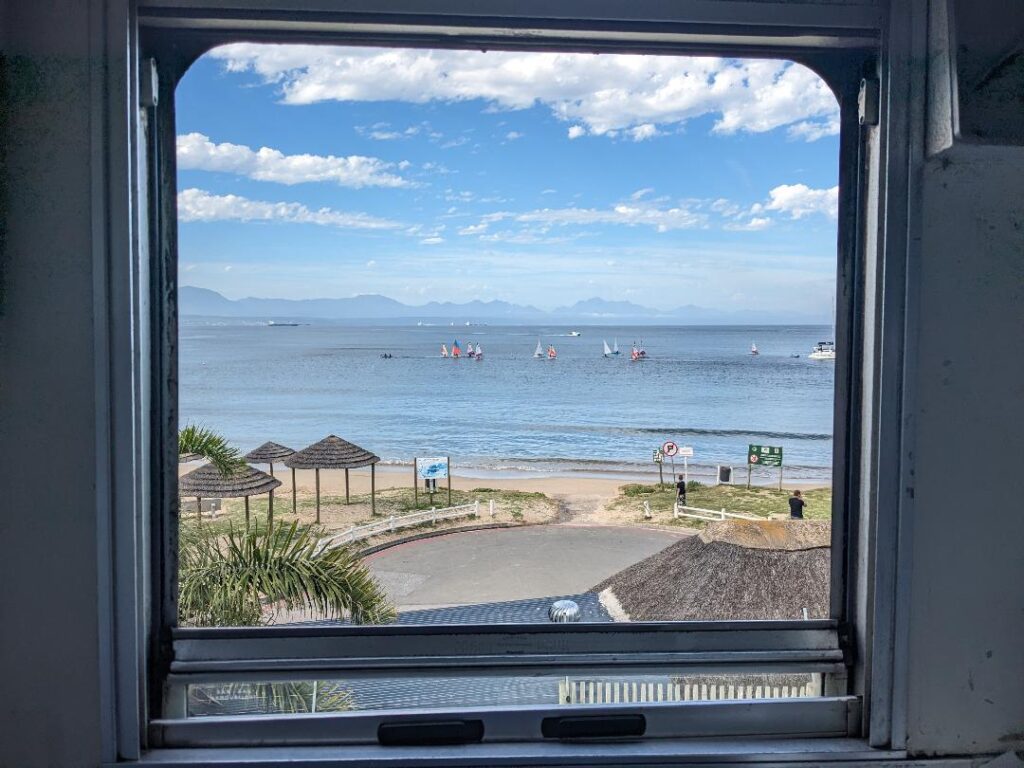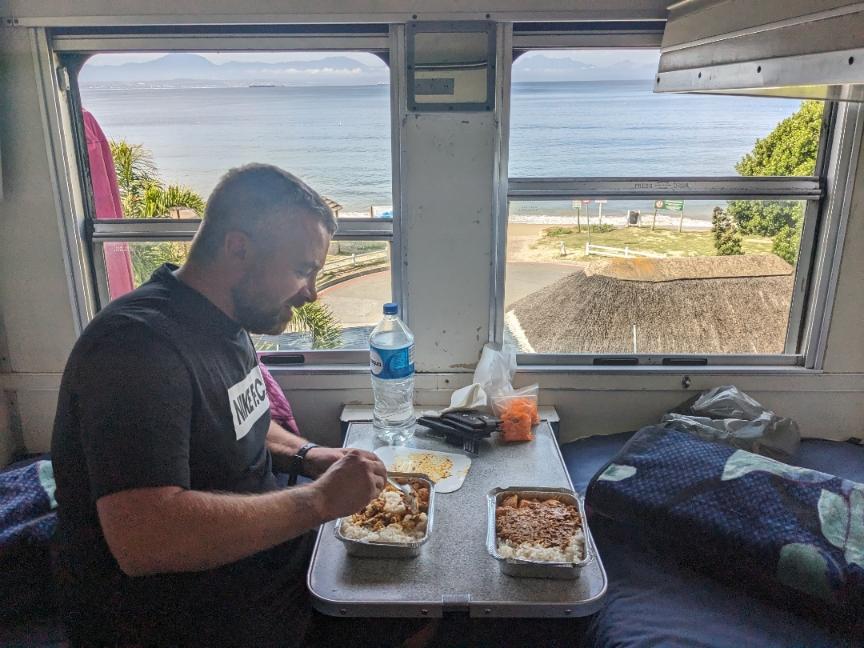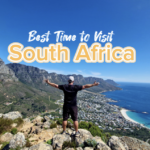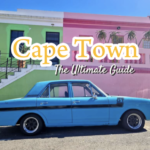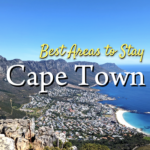Last updated on August 11th, 2024 at 04:15 am
South Africa was the last country on our Cairo to Cape Town journey. And we think we saved the best till last!
After relaxing and celebrating in Cape Town, we embarked on a South Africa road trip covering over 3000 km from Cape Town to Johannesburg. Throughout our journey, we encountered breathtaking landscapes, thrilling wildlife safaris, bustling urban centers, stunning beaches, and many adventurous activities.
No matter what kind of South Africa holiday you are planning, be it a safari, adrenaline, luxury, or perhaps all of the above on a spectacular honeymoon, this stunning country has something to offer for everyone!
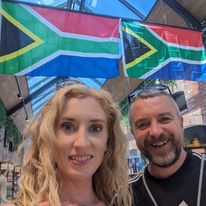
Are you thinking of going on a South Africa holiday? If so, have a read of our tips, which will tell you all the best advice you need to know before traveling.
We will keep this as short and simple as possible!
1 – Do I Need a Visa for South Africa?
South Africa is a visa-free country for Western countries, allowing you a stay up to 90 days, just like Namibia, show up and present your passport, easy isn’t it?!
If you were to leave and re-enter, then your 90 days restart.
For more information about African Visa click here
2 – What are the Best Attractions in South Africa?
South Africa has so much to offer it proved quite difficult to narrow them down but here are our chosen standout attractions:
- Kruger National Park: One of Africa’s largest game reserves, offering extraordinary wildlife viewing including the Big Five (lion, leopard, elephant, buffalo, rhino).
- Table Mountain: A renowned landmark in Cape Town. Get your Cape Town Hop-on, Hop-off bus tour here. Table Mountain provides breathtaking views of the city and surrounding coastline. Visitors can hike or take a cable car to the top.
- For amazing views OF Table Mountain make sure to hike Lion’s Head!
- Cape Winelands: Known for its picturesque vineyards and excellent wine estates, offering wine tastings, cellar tours, and beautiful landscapes in areas like Stellenbosch and Franschhoek.
- Garden Route: A scenic stretch along the south-eastern coast, featuring – stunning landscapes, charming towns like Knysna and Plettenberg Bay, and diverse activities such as hiking, whale-watching, swimming with seals, the highest bridge bungee/gorge swing, and stunning coastal drives.
- Robben Island: Historic site off the coast of Cape Town, where Nelson Mandela was imprisoned for 18 out of the 27 years. It’s a symbol of South Africa’s struggle against apartheid, with guided tours offering insight into its history.
- Drakensberg Range: The various hikes amongst the majestic Drakensberg Range were some of the most breathtaking scenery we have ever seen.
- Cultural Experiences: From Soweto in Johannesburg to the Zulu cultural villages, South Africa offers rich cultural experiences, showcasing traditions, music, dance, and local life. Get your Johannesburg Hop-on Hop-off bus tour here with an optional Soweto tour. Or opt for an ultimate Johannesburg Tour with the J’burg in One Day Tour which also includes the Apartheid Museum.
These attractions represent just a fraction of what South Africa has to offer, providing a blend of natural beauty, wildlife encounters, historical significance, and diverse cultural experiences.
3 – What is the Best Month to Visit South Africa?
South Africa’s weather and tourist seasons differ across regions:
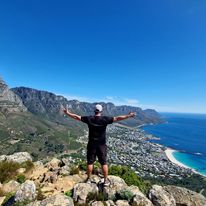
- Cape Town and the Garden Route: The best time is typically from late January to April and then again from September to October. These months offer mild temperatures, fewer tourists, and beautiful landscapes.
- Kruger National Park and the North: May to September is prime for wildlife viewing as it’s the dry season when animals gather around waterholes. However, it can get cold in the mornings and evenings.
- Coastal Areas: South Africa’s coastline has varied climates. The East Coast experiences warmer weather throughout the year, while the West Coast can get windy and cold, especially from June to August.
- Winelands: Harvest season in the Winelands happens around February and March, offering a vibrant atmosphere and opportunities for grape stomping and wine tasting.
Make sure to consider your interests and preferred activities when planning your visit.
4 – What is The Currency in South Africa?
The South African Rand is the currency of South Africa. At the time of writing 100 ZAR is around the 4.85 Euro mark (the same as Namibia).

5 – How Much Should I Budget for South Africa?
This is an extremely personal question to answer and has so many factors to consider but let’s give it a go!
First, questions to consider:
What type of traveler are you – Luxury, solo, budget, family?
Are you on a fancy holiday where you do not want to think about budgeting and just want to have an awesome time staying in resorts and drinking cocktails?
How Much Did We Spend on Our Month-Long South Africa Trip?
Our South Africa trip involved spending a week in Cape Town before renting a car and driving to Johannesburg over the course of 3 weeks.
Our main activity costs included a full-day wine tour, hike/National park fees, the highest bungee jump, and the highest gorge swing.
During our month-long trip to South Africa, we spent just over 2000 Euros. However, we managed to keep costs down by renting a small car (although it was only a 1L engine and we recommend a larger engine than this!).
Also, we stayed with family for the final few days in Johannesburg, and often we cooked our own meals.
If you’re planning a trip and considering expenses for a larger vehicle rental, more luxurious accommodations, and eating out, we’d suggest budgeting almost double our spending for a typical South African holiday.
Visiting South Africa we found to be more expensive than other African countries due to the car rental however we found the accommodation and food prices to be reasonable and affordable.
Accommodation
Like most places, South Africa offers a wide range of accommodations depending on your preferences and budget. These options range from budget stays at 20 Euro/night to Luxury Safari Lodges at 100 Euro/night.
Have you ever stayed the night on a train going nowhere?! Well, look no further we’ve got you covered! For THOSE views with breakfast included for only 20 Euro/night – yes please!!
You will find all your accommodation needs on Booking.com as well as numerous mid-range apartment options.
Please support us and help us grow. Use any of the links in this article and it will redirect you to a new page. Any purchases will give us a small commission at no extra expense to you! If not, then please continue to read and enjoy.
- Skyscanner – Start planning your trip by finding the best flight deals.
- Discovercars – Discovercars is the best website to compare all car rental companies and score the best deal for you. There are all sorts of vehicles available, from small-budget cars to large family saloons.
- Bookallsafaris – Compare the best deals for all safari budgets.
- Booking.com – Find the best prices on hotels with booking.com and don’t forget to book through TopCashback.
- TopCashBack Use this app to get an additional % off the above websites.
- WorldNomads – Travel insurance is our go-to insurance company. They have the best fine print of all travel insurance companies and are number one for a reason.
Food
South Africa is extremely multicultural and this is reflected in its cuisine, blending indigenous traditions with European, Asian, and Indian flavours. Some iconic South African dishes include:
- Braai: South Africans (just like Namibians) love their Braais. A beloved tradition similar to barbecue, where meat is grilled over an open flame.
- Biltong: A type of dried, cured meat, often made from beef or game meats, seasoned with various spices.
- Curries: Durban has a significant Indian population and boasts a strong Indian culinary influence, particularly in its famous delicious curries.
- Bunny Chow: Originating from the Indian community. it consists of a hollowed-out loaf of bread filled with curry, typically chicken or mutton. It’s a popular street food and a must-try in Durban.
- Pap and Wors: Pap is a type of maize porridge served with boerewors (sausage) and is often accompanied by tomato and onion relish.

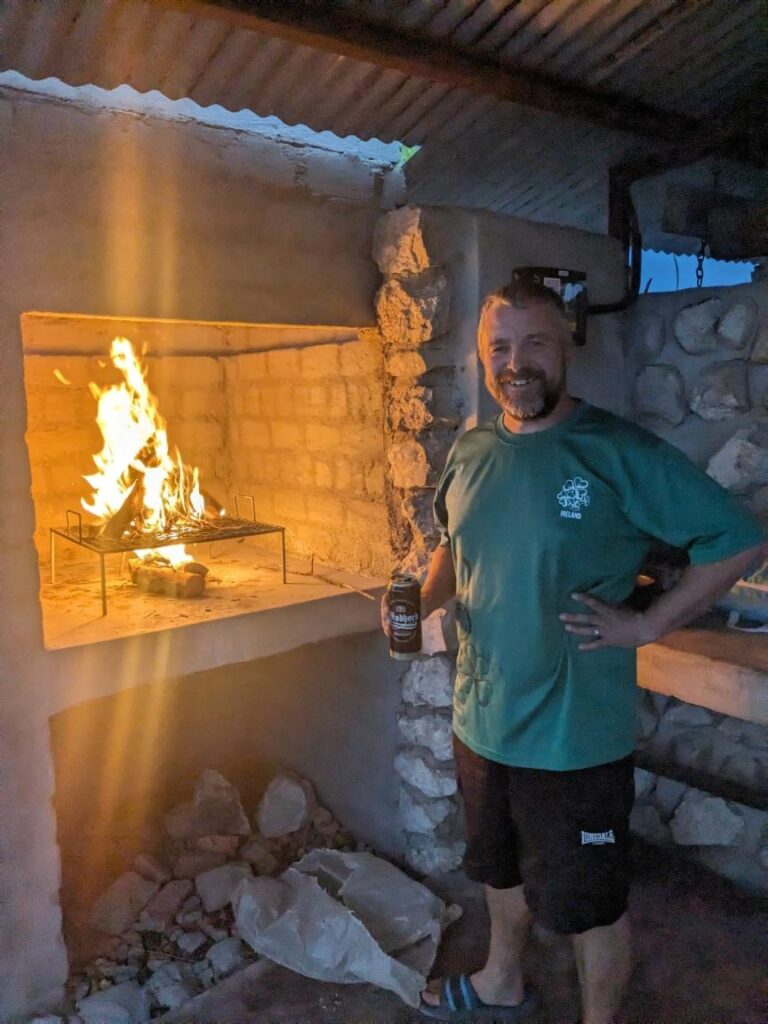
All the above dishes can be purchased in supermarkets and/or restaurants with the restaurant option costing considerably more.
However in saying that we still felt that restaurant prices were pretty reasonable with a steak dinner costing on average 20 Euro.
Alcohol
Alcohol is readily available in bars, restaurants, hotels, supermarkets, and liquor stores across the country.
Given that South Africa is recognized globally for its wine industry you can purchase certain bottles of great wines in a liquor store costing less than two Euros.
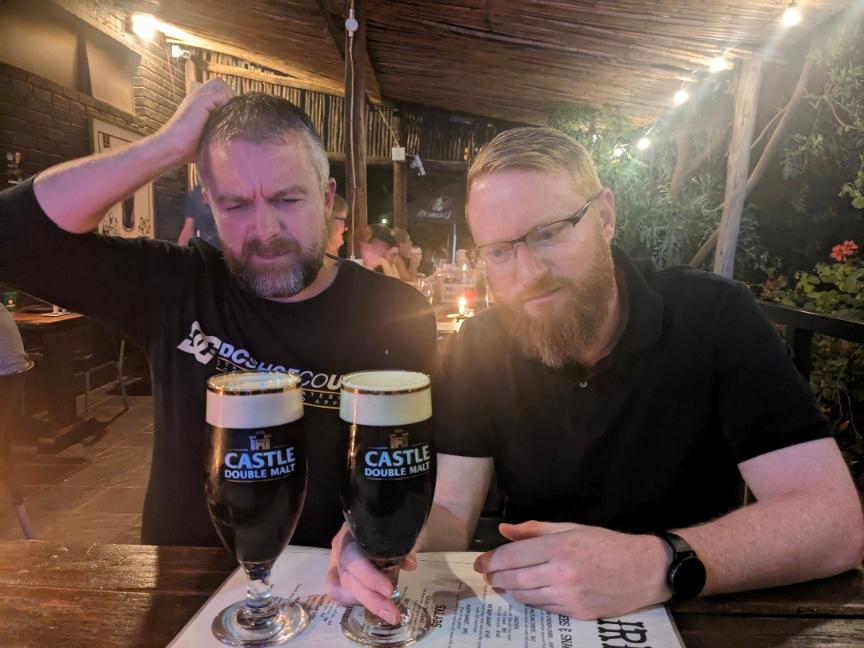
The country has seen a surge in craft breweries and cideries, especially in urban areas like Cape Town and Johannesburg. Some of the most popular craft beers include Jack Black and Devil’s Peak.
If craft beer is not your thing you can just stick with the well-known “normal” beers like Castle Lite and Hansa. In a bar, these beers will cost between 1-2 Euros.
6 – Transport – How to Get Around South Africa?
When traveling within South Africa, the choice of transportation often depends on the distance, destination, budget, and personal preference.
As we were travelling from Cape Town to Johannesburg, with lots to see and do along the way, we opted for a car rental. Within cities such as Cape Town, when we were not walking, we used Uber.
- Roads: South Africa has a well-developed road network, making travel by car, bus, or taxi a common choice. Car rentals are available at airports and in cities.
- Public Transport: Cities like Johannesburg, Cape Town, and Durban have public bus systems and commuter trains. Minibus taxis are a popular mode of transport for short-distance travel within cities and towns. However, for safety reasons we would not recommend these.
- Long-Distance Travel: Inter-city buses and coaches run by various companies offer long-distance travel options between major cities and towns, providing an affordable alternative to flying.
- We used the Intercape service when travelling from Windhoek, Namibia, to Cape Town and we would highly recommend it for your inter-city journeys in South Africa.
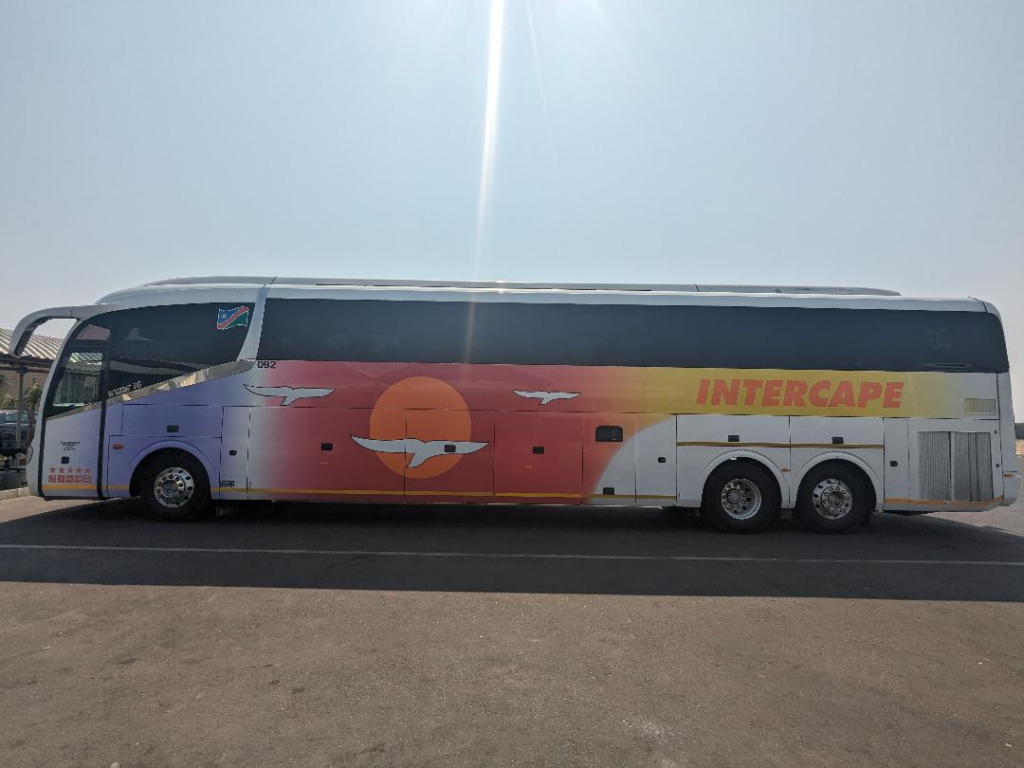
- Tourist Transport: For tourists, guided tours are available, especially for accessing remote or tourist-heavy areas. These tours offer a variety of choices and budgets – budget safaris, luxury safaris, Garden Route and Cape Town tours – you are surely to find a tour to suit your needs.
- Air Travel: South Africa has several domestic airports serving major cities and tourist destinations. Domestic flights are available, providing quicker travel between distant locations. This may be the top choice if on holiday and tight for time.
Is there Uber in South Africa?

Yes, Uber operates in several cities across South Africa, including Johannesburg, Cape Town, Durban, Pretoria, Port Elizabeth, and Bloemfontein.
7 – Can you use ATMs in South Africa?
Yes, ATMs are widely available throughout South Africa in cities, towns, shopping malls, and other populated areas.
We would suggest using ATMs that have security present and if someone asks to “assist” you, “politely” tell them where to go and perhaps consider using another ATM!
8 – What Socket Type to use in South Africa?
In Namibia the power plug sockets are of type D
- Type D: mainly used in India, Sri Lanka, Nepal, and some African countries. This socket only works with plug D.

The standard EU two-pin Type C plug can also be used as some accommodations provide a converter. However, do not always rely on this.
*Why not just purchase a Multi Travel Adapter so you are prepared for any plug type?!
9 – Is it Safe to Visit South Africa?
In our own experience, we did not encounter any safety issues during our South Africa trip and actually found South Africans to be up there with some of the friendliest people we met along our Cairo to Cape Town trip.
However, we did meet other travellers along the way who were not as lucky and had unfortunate encounters of hold ups/muggings.

Needless to say, we were more vigilant and alert in South Africa than anywhere else.
Here are some things to consider regarding safety:
- Crime: South Africa does have a relatively high crime rate, especially in urban areas. Tourists should exercise caution and be vigilant, particularly in cities like Johannesburg, Cape Town, and Durban. Be aware of your surroundings, avoid displaying valuables, and use reputable transportation options.
- Health Concerns: Certain areas might have health risks such as malaria in specific regions. It’s advisable to take necessary health precautions, including vaccinations and anti-malarial medications, depending on your itinerary.
- Natural Hazards: Some regions may experience natural hazards like heavy rains, flooding, or wildfires, which can impact travel plans. Stay informed about local weather conditions and follow guidance from authorities.
- Travel Advisories: Before traveling, check your government’s travel advisories for the latest safety information and any specific recommendations or warnings related to South Africa.
As always we recommend trusting your gut in regards to your own safety as with anywhere in the world.
10 – What Language is Spoken in South Africa?
Did you know that South Africa is a multilingual country with 11 official languages?!!
Each with its own history and culture. The most widely spoken language is Zulu, followed by Xhosa, Afrikaans, English, and Sesotho.
Afrikaans is the second most spoken language in South Africa. The language is only 90 years old, it is officially the youngest language in the world.
English is the 4th most spoken language but is understood in most urban areas.
11 – Do I Tip In South Africa?
This was a big thing we learned while in South Africa. Expect LOTS of tipping.
For example, filling your vehicle at a petrol station the worker will also clean your windscreen. It is expected to tip for this extra job.
Parking your car, someone will always show up. You are expected to tip what you deem reasonable for this person to “look after” your vehicle while you are away.
After you have finished your food shopping at a supermarket someone will appear to take your trolley back – again, a tip is expected for this action.
So How Much Do I Tip?
We were confused by this ourselves! We asked our Namibian friends this question and they advised that a few coins are sufficient, 5-20 Rand (.25 – 1 Euro).
*If you do not have change available just say so.
12 – What SIM Card to Get in South Africa?
Obtaining a SIM card in South Africa is a relatively straightforward process. You can purchase a SIM card from various locations, including:
- Mobile Network Stores: Visit stores operated by major South African mobile network providers such as Vodacom, MTN, Cell C, and Telkom. These stores are typically found in shopping malls, city centres, and airports.
- We purchased our sim cards at the main supermarket chain “Checkers”. Here they did require proof of address for some reason, so we just got a letter from our booking.com host with no issues!
*To purchase a SIM card, you will generally need to provide identification so don’t forget your passport!
13 – What Packing Essentials do I Need for South Africa?
One thing we haven’t mentioned yet is Load Shedding. This is a term we had never come across prior to our South African trip and now one we will never forget!
Load shedding in South Africa refers to scheduled power cuts, conducted by South Africa’s electricity provider to manage demand and prevent grid failure.
What this means is that a certain times of the day/night there will be a planned power outage for 2 hours at a time and this can occur multiple times during the day.

Most accommodations are prepared for this and have backup generators but do not always rely on this.
This is the same list we recommend for the majority of African travel (and travel in general).
- It can get cold at night in South Africa so bring warm gear.
- Head torch – For the load shedding!
- Multi Travel Adapter – so you are prepared for any plug type!
- Dry bag – For the protection of everyday items from sand, rain, everything!
- Battery pack – For any long road trip as well as electricity outages.
- Download apps such as Google Translate, Google Maps, and Booking.com.
- Utilize budget apps such as TravelSpend to keep track of your spending.
You can find the full list of our travel tips below.
14 – Why is South Africa Worth Visiting?
South Africa is such an interesting country with so much to offer.
Boasting some of the world’s most breathtaking landscapes South Africa ranked no.1 for “Best Hikes” on our Cairo to Cape Town trip.

Couple this with an unbelievable (and affordable) safari experience, adrenaline activities (for some!), vibrant multi-cultural modern cities, and some of the most tasty foods and delicious wines.
Lastly, top this off with genuine friendly people making you feel more than welcome in their outstanding country.
We loved our South Africa trip. Please let us know if we are missing anything that makes a great holiday because we feel South Africa ticks all the boxes!
Slán go fóil


This post contains affiliate links. If you click on the links to make a purchase, we will earn a small commission. This is at NO EXTRA COST to you. This is a free way to support us and allow us to continue to create inspiring adventure travel guides.

